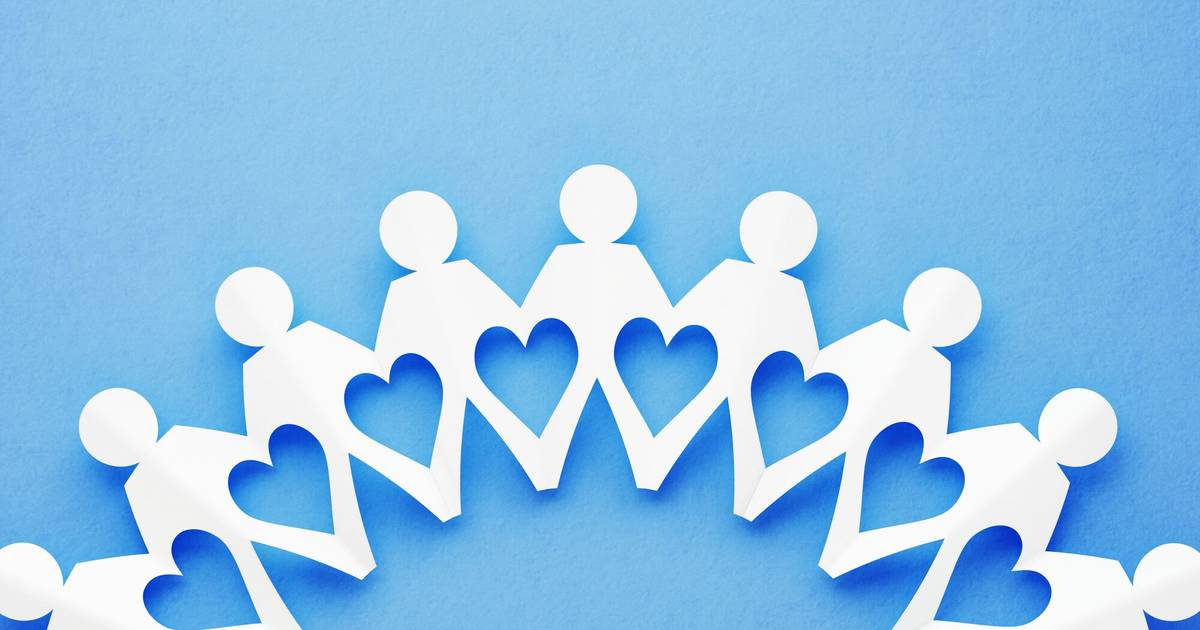The tidal impact of small kindnesses
Professor Smaranda Boros reflects on how we can overcome distance and fatigue caused by Covid-19
By Smaranda Boros
Professor of Organisational Behaviour

Source: Management Team (06/10/2021); Author: Smaranda Boros
How do you rebuild yourself once you crossed the point of no return? A recent Bloomberg article discussed a survey of the workforce which reveals the extent of rethinking our lives and choices (from jobs, careers, family situations) which is occurring these days: With remote work and social isolation being replaced by different forms of ‘return to normal’ or novel ways to invent said normal, many find it more difficult to come back to a social life and social working settings – some more so than going into isolation. We are all tired, and even if we missed sociality, it is yet another change we have to entertain, with dwindling resources left. So how can we come back to our social selves? How do we overcome the distance and fatigue?
In his work on trauma (and I am basing this whole argument on the premise that the pandemic was/continues to be a generational-defining traumatic global event), Peter Levine learned from animals what they do after a potentially traumatic event, in order to prevent trauma from settling in the body: they physically release the energy stored in the fight/flight reaction (i.e., intense shivers) and, most importantly, gather together. The antelope that narrowly escaped the predator will be welcomed in the middle of the herd. Connectedness and empathy are key to helping our bodies cope with trauma.
In humans, connectedness takes many forms. One of these lesser explored forms, with incredible positive consequences for both giver and receiver, are ‘random acts of kindness’. Remember the last time when you had one of those days, when a dark cloud seemed stuck above your head, and a stranger extended a small kind gesture towards you - like giving you right of way and smiling while they invited you ahead in busy traffic. Or held the elevator when they saw you hurrying. Let you ahead of them in a queue because you only had one item and they had a basketful. Any random example that comes to mind is a good example. Random acts of kindness do not need to be big or flashy. They are just a selfless act offered towards someone - especially someone you do not have a close relationship with (we all tend to show more kindness to those in our close circle).
Interestingly, research consistently shows that such acts of kindness not only impact the mood of the receiver (and we all had those bleak days, when the smallest of such acts is enough to remind us that humanity is not completely lost), but on the giver too. Consistently practicing such random acts of kindness for two weeks improved life satisfaction and well-being of participants both at the end of the period and lingered on two months later (compared to practicing self-compassion, which only had an immediate effect - Mongrane et al, 2018). Those who benefitted the most from practicing this were, even more intriguingly, those who would not normally do so on their own — people low on the personality trait known as Agreeableness (i.e., a personality dimension involving hostility, antagonistic behaviors, and the propensity for conflict). Across a plethora of studies reviewed in a 2018 meta-analysis, Curry and his co-authors found a consistent effect of kindness acts on well-being, effect that was not moderated by sex, age, type of participant, intervention, control condition or way of measuring the outcome.
In the covid-19 context, Ross & Van Der Boor (2020) surveyed over 600 participants on their mental health and well-being outcomes as a result of lockdowns, and discovered that while selfisolating before lockdown, increased feelings of isolation since lockdown and having COVID-19- related livelihood concerns were associated with poorer mental health, well-being and quality of life, perceiving increased kindness, community connectedness and being an essential worker were associated with better mental health and well-being outcomes. So both being at the giving and the receiving end of kindness is good for us.
Just because an answer is simple and easy to enact, doesn’t make it less powerful. So how about setting for yourself a kindness challenge? Practice random acts of kindness whenever you have the chance (or set a daily target if you’re the achiever type), then review your progress at the end of each day. Simply remembering those acts of kindness and reflecting on continuing the trend is a mindset switcher - from the fatigue at the end of the day to a positive outlook, refocusing the memory on the good things (no matter how small) that peppered your day. Sometimes you’ll be at the receiving end of kindness, and your reflection can then expand to gratitude; other times you will be the maker of a slightly brighter mood through your own actions.
In a world that so badly craves a feeling of control after an overpowering period of uncertainty, why not practice this one small thing which truly is in our control? A small act of kindness and its rippling consequences: this is how you shift the tide. One random act of kindness at a time.
Get in touch!
Smaranda Boros
Professor of Intercultural Management and Organisational Behaviour
